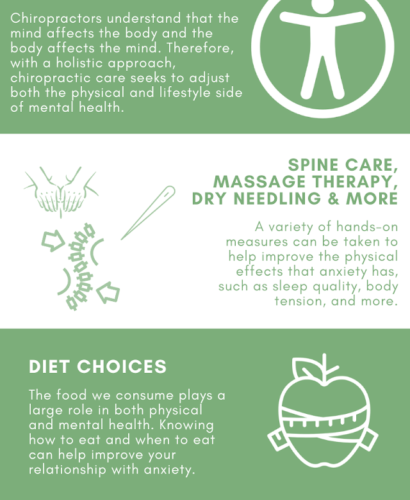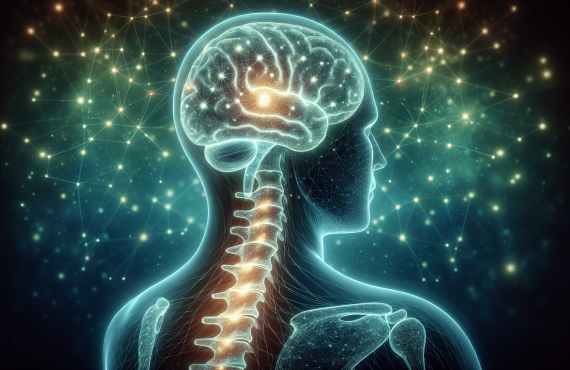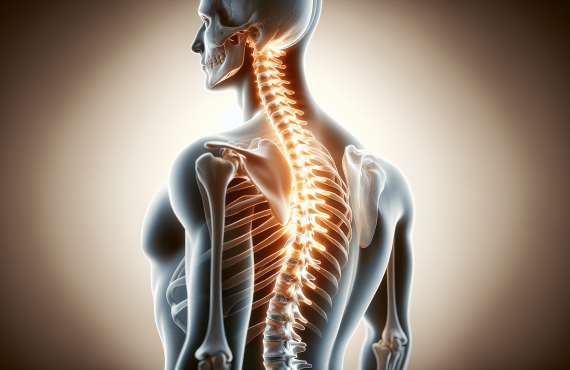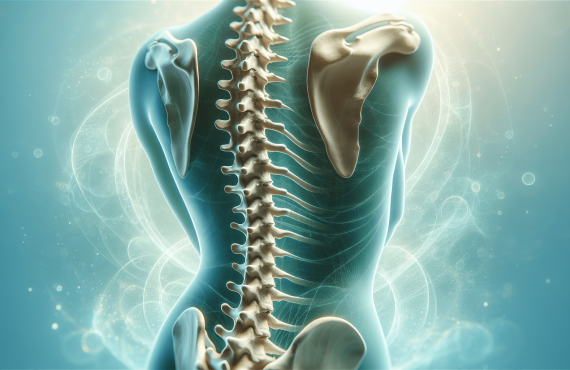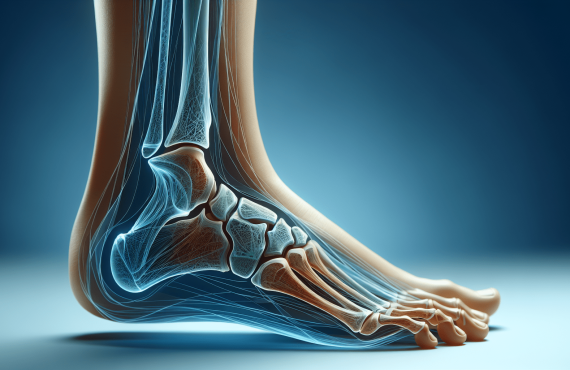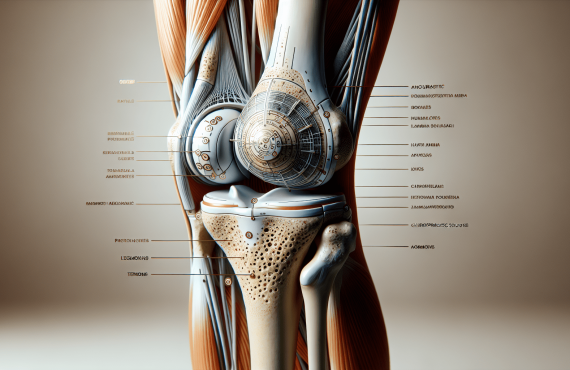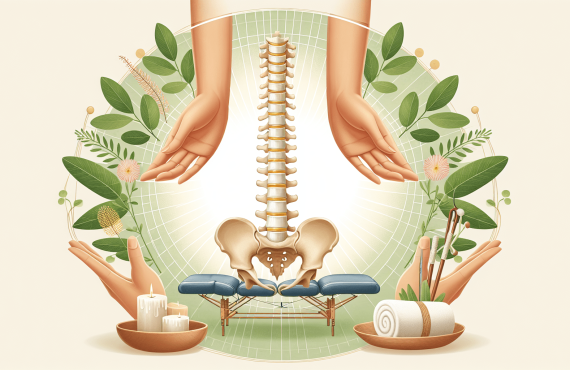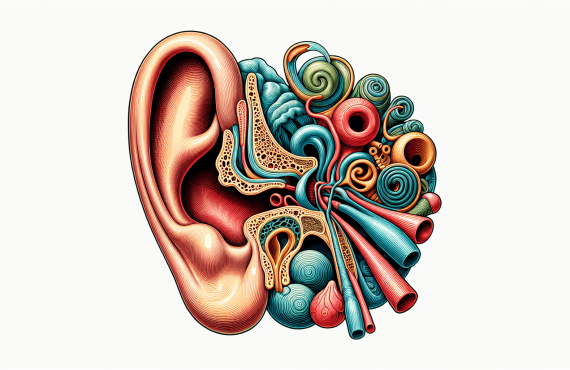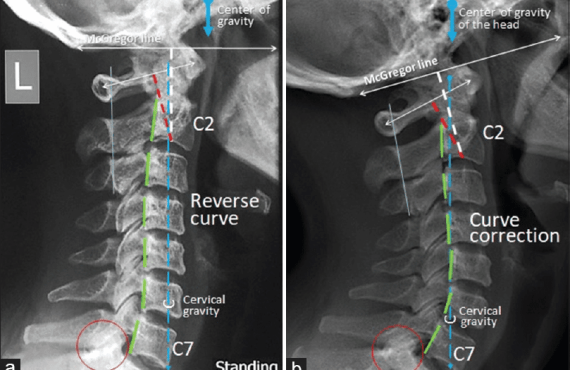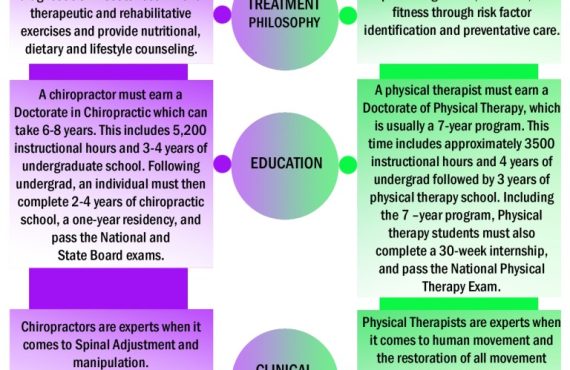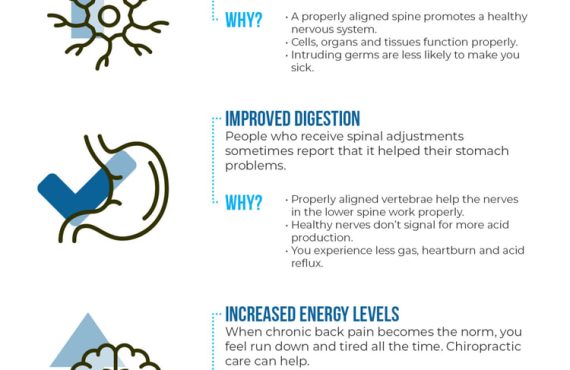Stress is a common experience that we all face in our daily lives, but did you know that it can have a profound impact on our spine? The effects of stress on the body can manifest in various ways, and one area that is particularly vulnerable is the spine. The tension and anxiety that come with stress can lead to muscle tightness and stiffness in the back, neck, and shoulders, causing discomfort and pain. Thankfully, chiropractic care can provide relief and help restore proper alignment to the spine. At Henry Chiropractic, located in Pensacola, FL, Dr. Craig Henry and Dr. Aaron Hixon are dedicated to improving the health and well-being of their patients through chiropractic treatments. Let’s explore further how stress affects the spine and how chiropractic care can help alleviate its effects.
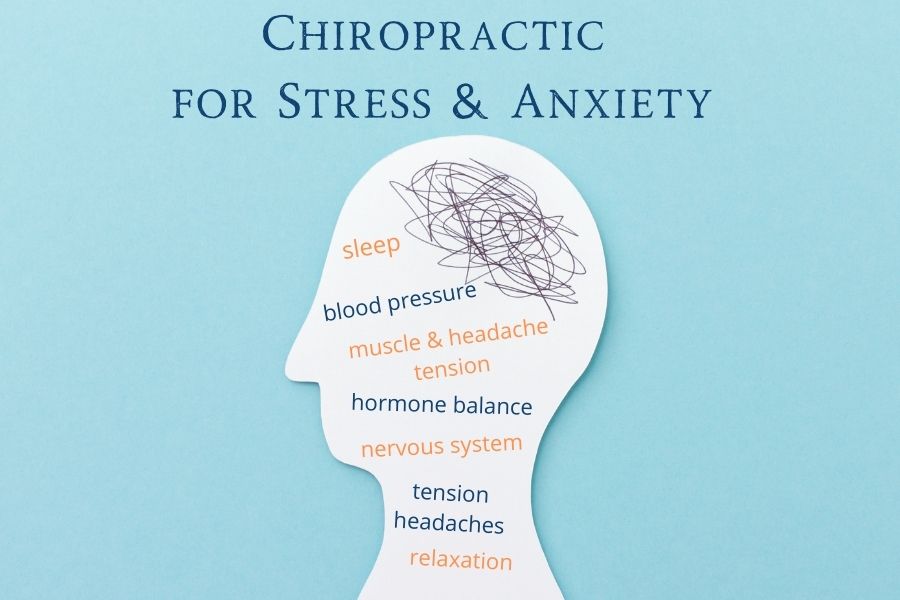
This image is property of thehouseclinics.co.uk.
Table of Contents
Effects of Stress on the Spine
Stress can have a significant impact on our overall health and well-being, including the health of our spine. When you experience stress, whether it is caused by work, family, or personal issues, your body responds by releasing stress hormones such as cortisol. These hormones can cause physical, emotional, and psychological effects that can take a toll on your spine. Understanding these effects is crucial in maintaining a healthy spine and seeking appropriate treatment when needed.
Physical Effects
One of the physical effects of stress on the spine is muscle tension and pain. When you are stressed, your muscles tend to become tense and contracted, leading to discomfort and even chronic pain. This tension can affect the muscles surrounding your spine, causing pain in the neck, shoulders, and lower back.
Another physical effect of stress is posture problems. When you are under stress, you may find yourself hunching over or slumping, which can put strain on your spine and lead to imbalances in your posture. Poor posture not only affects your spinal alignment but also contributes to muscle tension and pain.
Emotional Effects
Stress can also have emotional effects that can indirectly impact the health of your spine. When you are stressed, you may experience feelings of anxiety, depression, or irritability. These negative emotions can lead to poor coping mechanisms such as overeating, adopting unhealthy habits, or neglecting self-care, all of which can indirectly affect your spinal health.
Psychological Effects
In addition to the physical and emotional effects, stress can also have psychological effects on the spine. Chronic stress can lead to increased sensitivity to pain, as well as reduced pain tolerance. This means that even minor issues with your spine, such as slight misalignments or muscle tension, can cause more pain and discomfort than they normally would.
Common Spinal Problems Caused by Stress
The physical, emotional, and psychological effects of stress can contribute to various spinal problems. Understanding these common issues can help you identify and address any stress-related problems with your spine.
Muscle Tension and Pain
As mentioned earlier, stress can cause muscle tension and pain in the neck, shoulders, and lower back. This muscle tension can lead to chronic pain and discomfort, making it difficult to perform daily activities and maintaining a good quality of life.
Posture Problems
Stress-related poor posture can cause imbalances in your spinal alignment. When your posture is compromised, it can lead to additional stress on your spine, which can result in chronic pain, stiffness, and reduced mobility.
Spinal Misalignments
Chronic stress can also contribute to spinal misalignments, also known as subluxations. Subluxations occur when the vertebrae in your spine become slightly misaligned, causing interference with the proper functioning of your nervous system. This interference can result in pain, reduced mobility, and other health issues.
Role of Chiropractic Care in Managing Stress-Related Spinal Issues
Chiropractic care offers a holistic approach to managing stress-related spinal issues. Chiropractors are healthcare professionals who specialize in diagnosing and treating issues related to the musculoskeletal system, including the spine. They use non-invasive techniques to promote spinal health and alleviate pain caused by stress-related spinal problems.
Holistic Approach to Spinal Health
Chiropractic care takes into consideration the interconnectedness of the body and focuses on addressing the root cause of the problem rather than just relieving symptoms. By promoting overall wellness, chiropractors can help you manage stress and its effects on your spine effectively.
Spinal Adjustments and Manipulations
One of the primary techniques used by chiropractors to address stress-related spinal issues is spinal adjustments and manipulations. These techniques involve applying gentle pressure or quick thrusts to specific areas of the spine to correct misalignments and restore proper spinal function. By realigning the spine, chiropractors can relieve pain, improve mobility, and enhance overall spinal health.
Relief of Muscle Tension and Pain
Chiropractors can also provide relief from muscle tension and pain caused by stress. Through various techniques such as soft tissue manipulation, myofascial release, and trigger point therapy, chiropractors can help reduce muscle tension, alleviate pain, and promote relaxation.
Improving Posture
Chiropractors are trained to assess and correct postural imbalances caused by stress. Through a combination of spinal adjustments, exercises, and patient education, chiropractors can help improve posture, relieve strain on the spine, and prevent further damage.
Promoting Overall Wellness
Chiropractic care goes beyond just addressing the symptoms of stress-related spinal issues. Chiropractors emphasize the importance of overall wellness, which includes lifestyle modifications, stress management techniques, and nutritional guidance. By taking a comprehensive approach to your health, chiropractors can help you better manage stress and maintain a healthy spine.
Specific Chiropractic Techniques for Stress-Related Spinal Issues
Chiropractors employ various techniques to address stress-related spinal issues. These techniques are tailored to individual needs and can effectively alleviate pain and restore proper spinal function. Here are some common chiropractic techniques used in managing stress-related spinal issues:
Diversified Technique
The Diversified Technique is one of the most widely used chiropractic techniques. It involves manual adjustments to correct spinal misalignments. Chiropractors use their hands to apply controlled forces to specific areas of the spine, helping to restore proper alignment and alleviate pain.
Gonstead Technique
The Gonstead Technique focuses on precise and specific adjustments of the spine. Chiropractors use their hands to identify misalignments and make targeted adjustments to improve spinal function. This technique is particularly effective in addressing posture problems and restoring proper spinal alignment.
Instrument Assisted Soft Tissue Mobilization (IASTM)
IASTM is a technique that utilizes specialized instruments to apply gentle pressure and promote healing in soft tissues surrounding the spine. This technique helps reduce muscle tension, improve blood flow, and promote tissue repair, all of which are beneficial in managing stress-related spinal issues.
Myofascial Release Technique (MRT)
MRT involves applying sustained pressure to tight and restricted areas of the muscles and fascia. This technique helps relax muscles, improve flexibility, and release tension. MRT can be particularly effective in managing muscle tension and pain caused by stress.
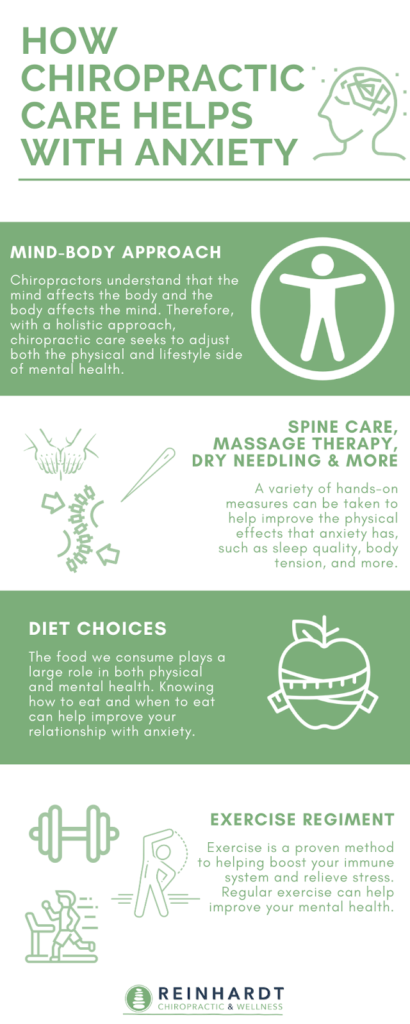
This image is property of www.reinhardtchiropractic.com.
Benefits of Chiropractic Care for Spinal Health
Chiropractic care offers numerous benefits for maintaining spinal health, especially in managing stress-related spinal issues. Here are some advantages of chiropractic care:
Non-Invasive and Drug-Free
Chiropractic care is a non-invasive and drug-free approach to spinal health. Unlike medications or surgeries, which may have side effects and risks, chiropractic treatments focus on natural methods to promote healing and enhance overall well-being.
Personalized Treatment Plans
Chiropractors develop personalized treatment plans based on individual needs and goals. Each treatment plan is tailored to address specific stress-related spinal issues, ensuring that the care provided is effective and targeted.
Improves Range of Motion
By addressing spinal misalignments and reducing muscle tension, chiropractic care helps improve range of motion. Increased mobility allows you to perform daily activities more comfortably and reduces the risk of further damage to the spine.
Enhances Nervous System Functioning
Chiropractic adjustments aim to correct spinal misalignments and remove interference from the nervous system. As a result, the communication between the brain and other parts of the body improves, leading to enhanced nervous system functioning and overall health.
Boosts Immune System
Chiropractic care has been shown to have positive effects on the immune system. By reducing inflammation, improving circulation, and relieving stress, chiropractic adjustments can enhance immune system functioning, making you less susceptible to illnesses and promoting faster recovery.
Case Studies: Real-Life Examples of Chiropractic Success in Managing Stress-Related Spinal Problems
To illustrate the effectiveness of chiropractic care in managing stress-related spinal issues, here are a few real-life examples of patients who have experienced positive outcomes:
Patient A: Relief from Chronic Neck Pain
Patient A presented with chronic neck pain caused by stress-related muscle tension. Through a combination of spinal adjustments, soft tissue manipulation, and lifestyle modifications, the chiropractor was able to alleviate the patient’s pain significantly. The patient reported improved mobility, reduced muscle tension, and an overall improvement in their quality of life.
Patient B: Improved Posture and Decreased Back Pain
Patient B suffered from poor posture and chronic back pain due to stress. Under chiropractic care, the patient received spinal adjustments, posture correction exercises, and ergonomic recommendations. Over time, the patient’s posture improved, and their back pain decreased significantly. They felt more comfortable and experienced a boost in self-confidence as a result.
Patient C: Restored Spinal Alignment and Reduced Headaches
Patient C presented with severe headaches and spinal misalignments caused by stress. Through a series of chiropractic adjustments and soft tissue mobilization, the patient’s spinal alignment was restored, and their headaches reduced in frequency and intensity. The patient reported feeling more relaxed and less prone to stress-related symptoms.

This image is property of waterloochiropractic.com.au.
Tips for Managing Stress and Maintaining Spinal Health
In addition to seeking chiropractic care, there are several lifestyle factors that can help you effectively manage stress and maintain a healthy spine. Here are some tips to consider:
Exercise Regularly
Engaging in regular physical activity can help reduce stress and strengthen the muscles that support the spine. Aim for a combination of cardiovascular exercises, strength training, and flexibility exercises to promote overall spinal health.
Practice Stress-Relieving Techniques
Incorporate stress-relieving techniques such as deep breathing exercises, meditation, yoga, or mindfulness into your daily routine. These practices can help you relax, reduce muscle tension, and alleviate stress.
Maintain a Balanced Diet
A well-balanced diet rich in fruits, vegetables, lean proteins, and whole grains can provide your body with the necessary nutrients to cope with stress and support spinal health. Avoid excessive consumption of processed foods, sugary drinks, and alcohol, as they can contribute to inflammation and poor overall health.
Get Adequate Sleep
Quality sleep is essential for stress management and spinal health. Aim for seven to nine hours of uninterrupted sleep each night to allow your body and mind to rest and rejuvenate.
Stay Hydrated
Drinking an adequate amount of water throughout the day is important for maintaining spinal health. Staying hydrated helps nourish the spinal discs and promote their proper functioning.
How to Find a Qualified Chiropractor for Stress-Related Spinal Issues
When choosing a chiropractor to address your stress-related spinal issues, it is important to find a qualified and experienced professional. Here are some tips to help you find the right chiropractor:
Ask for Recommendations
Seek recommendations from friends, family, or healthcare providers who have had positive experiences with chiropractors. Personal recommendations can help narrow down your options and ensure you find a trusted professional.
Research Credentials and Experience
Look for chiropractors who are licensed and have appropriate credentials. Research their educational background, certifications, and experience in treating stress-related spinal issues. This information can give you confidence in their expertise and ability to provide effective care.
Schedule a Consultation
Before committing to any chiropractor, schedule a consultation to discuss your specific concerns and treatment options. During the consultation, pay attention to how the chiropractor listens to your concerns and their approach to your condition.
Discuss Treatment Options and Plan
Ask the chiropractor about their recommended treatment options and the expected outcomes. Inquire about the frequency and duration of the treatments to ensure they align with your needs and lifestyle. Open communication is essential in finding the right chiropractor for your stress-related spinal issues.

This image is property of kehoechiro.com.
Conclusion
Stress can have a profound impact on the spine, leading to various physical, emotional, and psychological effects. By understanding the relationship between stress and spinal health, you can take proactive steps to manage stress-related spinal issues. Chiropractic care offers a holistic and non-invasive approach to addressing these problems, providing relief from pain, restoring spinal alignment, and promoting overall well-being. By incorporating chiropractic care, stress management techniques, and healthy lifestyle habits, you can effectively manage stress and maintain a healthy spine for years to come.


